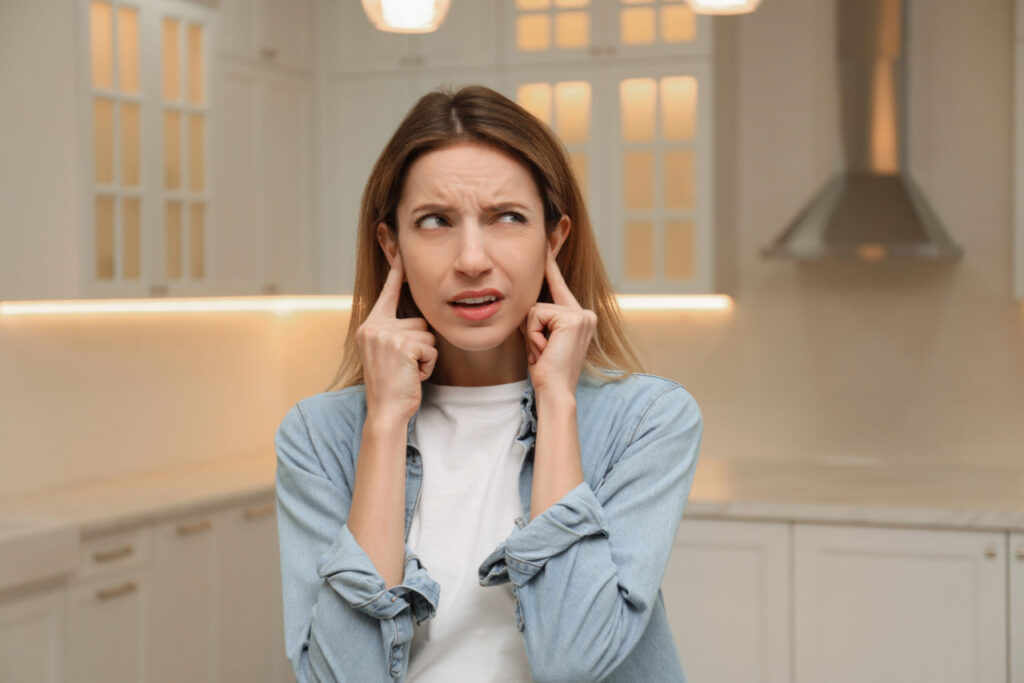
You will never find a quiet electric coffee bean grinder, a quiet electric smoothie maker, a quiet electric blender, etc. Before we get into “how” to make kitchen countertop electric appliances quieter, it is worth a short discussion to understand “why” anyone would or should want to make them quieter in the first place. The answer may surprise you.
Performing a specific and narrow internet search using Bing for “quiet coffee bean grinders” returns 1,840,000 results. So, there is definitely a lot of interest in this area. Many of the results from this query suggest manually operated models. If you don’t mind hand-cranking, then this is a good option to quiet things down in your kitchen/office. However, this does not work well for food processors, smoothie makers, etc. Additionally, the process takes longer and is less consistent than an electric option. Yes, some kitchen countertop electric appliances are a little quieter than others, but they are all NOISY!
There are some obvious consequences associated with activating kitchen countertop electric appliances. Examples include disturbing people trying to: sleep, watch TV, concentrate, listen to a quick BREAKING NEWS clip (GRRRRRRRRRR… “More on this fantastic sighting at 6PM!”), or just trying to carry on a conversation. Also, you NEVER want to wake up a baby or toddler, which is hazardous to your mental health and theirs. However, there are overlooked personal health risks to this type of noise exposure that most people are not aware of.
In your internet browser, search for “health effects of noise exposure.” Google finds some 59,300,000 results. Bing will find about 16,300,000 results. So based on the interest and information available, YES, it is important. However, most people don’t research this topic until they are suffering from the not so obvious consequences of noise exposure. Here are just a few of the noteworthy links you will find for this search:
The “workplace” is not where is used to be. Years of published studies prove the physical and mental ill effects of noise exposure in the occupational workplace. Don’t be misled by the word “occupational” thinking it only applies to factories. Remember, working from home is also an occupational workplace and the same information and statistics apply.
You may be thinking that noise expose from kitchen countertop electric appliance is not a big deal, because it’s only a minute or two, a few times per day, and it’s “not that loud”, right? Perhaps you assume that you can just get a hearing aid when you are old to fix the problem. WRONG! Please reread the “Not So Obvious Consequences” section and links.
Generally, the younger a person is, the less concern there is about the effects of noise exposure until it is too late. This revolves around a sense of immortality, being too busy, and “I have plenty of time” attitudes. Yes, I was young once too. What follows is a short testimonial of my personal experience with noise exposure and the lifelong consequences.
When I graduated from high school in 1969, I went to work for Southwestern Bell in downtown Houston, Texas. My job title was Coin Counter at the Charles St. office. Payphone money boxes came to this office in large, 4-sided, slotted, metal tubs from Coin Collect trucks.
Very noisy coin counting process:
I would repeat the process for all the slots, the other three sides of the tub, and grab another tub. I did this eight hours a day, 5 days a week, along with two other guys right next to me with the same motor-driven machines, in a room with cinder-block walls, concrete ceilings and concrete floors, for over a year. It was deafening.
The company did not offer any ear protection nor was any required by law at that time. I did get my own pair of earmuffs and ear inserts after being plagued with headaches. Of course, I was ridiculed by my workmates for it. The Occupational Safety and Health Administration (OSHA) didn’t come about until 1970, which was a bit too late for me. The organization did add laws and awareness around noise exposure.
Thankfully, I no longer have headaches. However, to this day I can’t make out very well what someone is saying in person, on a phone call, video conference, TV, lyrics in a song, etc. It is worse if there is any background noise. Trying to hear also leads to fatigue.
When my wife gets agitated with me, she tends to drift into porpoise-speak frequencies. I can see her lips moving, but I really can’t hear anything she is saying. SPECIAL TIP TO ALL HUSBANDS – Never respond with “what?” Just smile and nod your head until whatever it is goes away.
Thankfully, there is a very simple, unique solution to this annoying and unhealthy problem of noisy kitchen countertop electric appliances. Check out this short introduction YaYaLaRoo® Appliance Muffler video.
In conclusion, don’t be misled or mislead yourself into ignoring the very real dangers concerning noise exposure from your kitchen countertop electric appliances. Easily address the problem now and avoid short and long-term consequences with the YaYaLaRoo Appliance Muffler.

Hi, I am the Owner/CEO of YaYaLaRoo. My passion is that you enjoy the unique products, excellent service, articles, and mission of this website. Please feel free leave a Comment below for this article, or click Contact Us in the main menu.